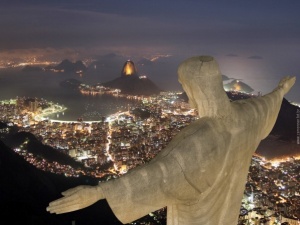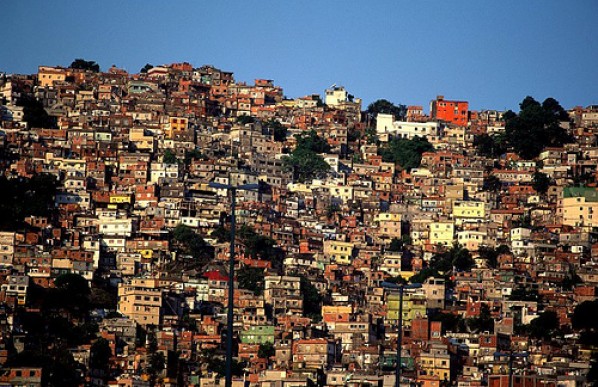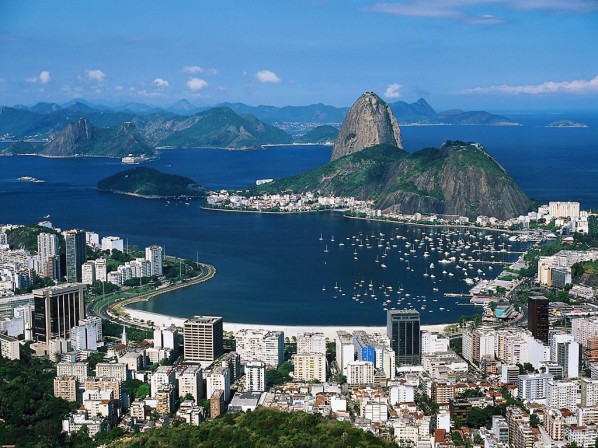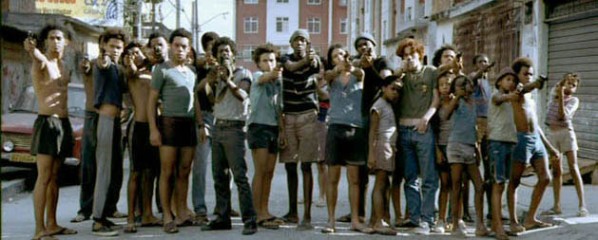City of God - could Rio’s latest mafia war end its dream of Olympic and World Cup glory?

With hosting rights to the 2014 World Cup and 2016 Olympics, Brazilian tourism has never had it so good. But this week’s gang battles in Rio have highlighted its toughest challenge – safety, and whether the city’s image of beautiful beaches and non-stop parties will be overshadowed by favela violence.
The latest disturbances erupted last Sunday when police stations and vehicles were attacked by gang members from the mafia stronghold of Vila Cruzeiro, one of Rio’s most notorious favelas.
Authorities have blamed the assaults on orders from imprisoned gang members trying to wrestle back control of their turf from the police.
Heavily armed officers and armoured cars then raided a number of hillside favelas across the outskirts of northern Rio. The running street battles and gunfire exchanges led to 30 deaths, including a 14-year-old girl hit on Wednesday by a stray bullet.

(One in six of Rio’s residents lives in a favela. There are over 1,000 favelas in the city.)
The past week represents just one of a series of sporadic mafia battles in a city where life can be beautiful but also very cheap.
Last November, just a fortnight after Rio won hosting rights to the Olympics, a police helicopter was shot down by druglords, which led to police raids and violence that resulted in 30 deaths.
And in August this year, 35 tourists staying in a luxury hotel were taken hostage by an armed gang involved in a shoot-out with police.
Ten armed members of a drug gang, who were on the run from police swept, entered the InterContinental hotel in the exclusive São Conrado area.
The violence was sparked when 60 members of a gang were intercepted by police whilst returning to their base in Rio’s largest favela, Rocinha, after an all-night party.
Some of the gang members managed to flee to Rocinha favela, but at least ten sought refuge in the hotel. The hostages were later released unharmed after a three-hour siege.

(Rio - the world’s most beautiful city but blighted by poverty and gang violence)
Commentating on the siege, the Brazilian sociologist Luiz Eduardo Soares said: “We have been sharing in the illusion that Rio is entering another chapter, turning the page on the horror. But this shows that the pacification units are merely islands of excellence in an ocean of barbarity that is very much alive.”
Most of Rio’s 1,000-odd favelas are still more or less controlled by three trafficking gangs or by criminal militias set up by rogue police and firemen.
Nor is Rio the only Brazilian city with security problems, growing from deep-seated social issues. Jenson Button, the British Formula 1 racing driver, escaped an attempted attack by armed men close to Interlagos, race track of the Brazilian Grand Prix in Sao Paulo, earlier this month. He admitted he felt “lucky” to have got away unharmed.
Last month Brazil made history by electing its first female president, and with it hopes that she will be able to continue the work of her predecessor, President Lula da Silva, by helping Brazil’s poorest shift into middle class.

(Favela violence immortalised in Fernando Meirelles’s opus City of God)
Dilma Rousseff, a 62-year-old former Marxist guerrilla fighter will also lead the largest economy into Latin America as it prepares to host the world’s two biggest sporting events back to back.
Meanwhile Rudolph Giuliani, who was credited with cutting crime in New York whilst serving as its mayor, has been drafted in as a long-term consultant to Rio in the run up to the Olympics.
Taking on the role, Giuliani warned that it would take many years for the authorities to get the violence blighting the city under control.

(Can Rudolph Giuliani get Rio under control in time the World Cup?)
Despite evidence of a fall in the murder rate in the city, the events of the past week are a stark reminder of the scale of the challenge still facing the authorities.
Only time will tell whether the police, with the help of Giuliani, can meet that challenge in time for Rio to showcase itself to the world as the Marvellous City for both rich and poor.

